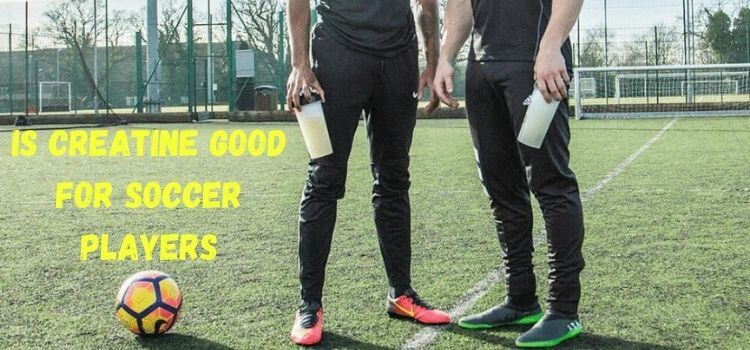As an Amazon Associate, I earn from qualifying purchases
Soccer, also known as football in many parts of the world, is a physically demanding sport requiring endurance, strength, and agility. Soccer players must carefully consider their nutrition and training regimen to perform at their best. One supplement that has gained popularity in the world of sports is creatine. But is creatine good for soccer players?

Introduction to Creatine
Creatine is a naturally occurring compound found in the body, primarily in the muscles. It plays a crucial role in producing adenosine triphosphate (ATP), the primary energy source for muscle contractions during high-intensity exercise.
Nutritional Needs of Soccer Players
Proper nutrition is essential for soccer players to fuel their bodies for optimal performance. They require a balanced diet of carbohydrates, proteins, fats, vitamins, and minerals to support energy levels, muscle repair, and overall health.
Creatine and its Benefits
Creatine supplementation has increased phosphocreatine stores in the muscles, improving performance during short bursts of intense activity, such as sprints and jumps.
This can benefit soccer players who must accelerate quickly and perform explosive movements on the field.
Research on Creatine and Soccer Players
Numerous studies have investigated the effects of creatine supplementation on soccer players. Research has shown that creatine can enhance muscle strength, power, and sprint performance, particularly during repeated bouts of high-intensity exercise.
Safety Concerns
While creatine is generally considered safe when directed, some potential side effects may occur, including gastrointestinal discomfort, muscle cramps, and dehydration. Soccer players need to stay hydrated and follow recommended dosage guidelines.
How to Use Creatine for Soccer Players
To maximize the benefits of creatine supplementation, soccer players should follow a loading phase followed by a maintenance phase. This involves taking higher doses of creatine for the first few days to saturate the muscles, followed by a lower maintenance dose.
Real-life Experiences and Testimonials
Many soccer players have reported positive experiences with creatine supplementation, citing strength, power, and recovery improvements. However, individual responses to creatine may vary; not all players experience the same benefits.
Professional Opinions
Sports nutritionists and trainers generally support using creatine for soccer players, especially those looking to improve explosive performance and muscle strength.
However, consulting a healthcare professional before starting any new supplement regimen is essential.
Myths and Misconceptions
Despite its widespread use and research-backed benefits, creatine is often surrounded by myths and misconceptions. One common misconception is that creatine is a steroid, which is false. Creatine is a naturally occurring compound found in foods like meat and fish.
Alternatives to Creatine
While creatine may benefit many soccer players, it’s not the only supplement available. Alternative options include beta-alanine, caffeine, and branched-chain amino acids (BCAAs).
Depending on individual needs, these supplements may offer different benefits and can be used with or instead of creatine.
Conclusion
In conclusion, creatine can be a valuable supplement for soccer players looking to enhance their performance on the field. With its proven benefits in increasing muscle strength, power, and sprint performance, creatine may help players improve their game.
However, using creatine responsibly is essential, as well as following recommended dosage guidelines and consulting with a healthcare professional if necessary.
Frequently Asked Questions (FAQs)
Creatine is a naturally occurring compound found in the body, primarily in the muscles. It helps produce ATP, the primary energy source for muscle contractions during high-intensity exercise.
Creatine is generally considered safe for most people when taken as directed. However, staying hydrated and following recommended dosage guidelines is essential to minimize potential side effects.
Creatine supplementation can increase muscle strength, power, and sprint performance, which are crucial for soccer players during matches and training sessions.
Creatine may cause a slight increase in body weight due to water retention in the muscles. However, this is not the same as gaining fat and is generally considered a temporary side effect.
Natural alternatives to creatine include beta-alanine, caffeine, and branched-chain amino acids (BCAAs). These supplements may offer similar benefits and can be used as alternatives or in combination with creatine.
Read Our More Articles
- How Much Does a Soccer Player Make Per Goal? Find Out Here!
- How to Make My Son a Professional Soccer Player: Tips & Tactics
- Do Soccer Players Take Creatine? The Ultimate Guide
As an Amazon Associate, I earn from qualifying purchases


